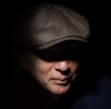Bert Carson's Blog, page 3
January 14, 2012
...don't say anything
 One year after I started running, my
One year after I started running, my
buddy, Carl Touchstone, told me I was ready for a marathon. I wasn’t so sure, so he continued his sales
presentation. “Sure you are, and this is
an easy one. It’s the Mardi Gras
Marathon, and the course is totally flat, no hills at all.” He paused, checked my eyes, saw that I needed
to hear more, so he picked up the line again.
“Look, the whole thing is across a bridge, the bridge over Lake Pontchartrain. The weather is always great. And there is a heck of a party at the finish
line.”
I still wasn’t convinced, but I agreed
to go anyway. Six of us, from Laurel,
Mississippi, rode down with Carl in his van.
On the way down, someone looked at me and said, “Are you going to try
the marathon? You don’t look in shape
for it.”
Before I could answer, Carl said, “He’ll
be fine. He’s been training for this.”
I thought, Training? Hell, I never heard of
this marathon until two weeks ago.
Thankfully, the conversation changed
course when someone said, “The weather report is not good. Forty is going to be the high for the day,
and we’re going to running straight into a 35 – 50 mph wind all the way. The rain is going to start about thirty
minutes after the race does.
Not only did the conversation change
course, it ended at that point.
An hour later, three thousand of us
were huddle on the north end of the bridge.
My friend, Jeff Troka, gave me a large garbage bag, the foul weather
gear of choice that day. The start of
the race was delayed for thirty minutes because it was too foggy for the news
and traffic helicopters to fly. Finally,
the gun sounded, and we were off. Just
as I got on the bridge the rain, driven by the wind, arrived, and it didn’t let
up for almost four hours. After the
first five miles, we were scattered over a long distance. Carl and everyone who I had been in the van
with were long gone. There were no
cheering spectators, not even fellow runners to talk to because we were running
single file, in long lines, with the tallest in front of each line, serving as a
wind break.
At the ten mile mark, runners were
already dropping out, beaten by the wind, rain, and temperature. Those who dropped out were picked up by
National Guardsmen in deuce-and-a-halves.
At the eighteen mile mark, I looked behind me. Where there had been a couple of dozen
runners forty-five minutes earlier, there was no one. Far behind, I could see a deuce-and-a-half
heading toward me. I turned back toward
New Orleans and kept slogging along.
I was thinking about hanging it up when
the truck pulled up beside me. As it
crept along keeping pace with me, a Louisiana National Guard Sergeant leaned
out the window and said, “Mister, you’re the last one we can leave out
here. The bridge is going to be open for
traffic in an hour. Do you want to stay,
or do you want to go with us?”
I opened my mouth, fully prepared to
say, “I’ll go with you,” when John Wayne spoke up; spoke right through my mouth
without hesitation, “That’s alright, Sarge.
I’ll stay. I’m going to finish
this thing.” John even topped it off
with a half salute, which the sergeant returned as the truck blasted away.
I watch it fade until it was gone. I was alone. It was just me and the
wind. Even John Wayne was gone. A long while later, I realized that I could
see the end of the bridge. I knew there
were two more miles to the finish line after the bridge but I didn’t care. I was going to quit. As I got closer to the end of the bridge, I
realized the road was lined with people.
I caught a small group of runners at the end of the bridge, and together
we found ourselves pelted with confetti and shouts of good wishes, all backed
up by a wall of cheering. I didn’t
care. I was going to quit. I’d made up my mind to quit. I was just looking for a place to get through
the crowd and sit down on the curb.
And then my plan went away with the
wind. A man stepped from the crowd,
moved to my side, and matched my stride.
A moment later, he touched my
arm, and finally got my attention. When I
managed to focus my gaze on him, he grinned, and shouted, “You’re going to make
it. You’re going to make it!”
I tried to smile back and did managed
to croak, “Yes, I am going to make it.”
And I did, thanks to a stranger, who
cared enough to encourage me when I obviously needed it.
When I stumbled across the finish line,
Carl, wrapped in a blanked, and sipping his fourth cup of hot chocolate, was
waiting, cheering like I’d won the race.
And, thanks to the man at the foot of the bridge, I had won it.
What’s all of that have to do with
writing? Everything. Here’s why.
***********
Last night, I read Kelly Stone’s blog -
Staring Out
the Window
Here’s an excerpt from the post, Hello, Mojo –
“Last
Saturday night, my confidence level shot to an all-time high. I graduated with my MFA in Fiction from
Southern New Hampshire University and was introduced by one of the four men I
admire most: The Father, Son, Holy Ghost and Craig Childs. When he introduced
me, his first words were "Kelly
Stone Gamble kicks ass." Getting praise for your writing from someone
like Craig Childs kicks ass.
I
came home on an all-time high and again, stared at a blank page.
Then
I had an idea and started to type.
In
three days, I have now written six chapters on a new novel. Yes, six rough chapters, but my mind is
turning and I pretty much have the story
line in my head, and with the help of a friend, have created a few very
interesting characters. I can't wait to
see what they do.”
Five words from Craig Childs,
jumpstarted Kelly Stone.
Last Thursday, I posted a blog called Zorro on writing. The blog was about a flying squirrel that I
nicknamed Zorro and an indie writer named J.A. Konrath. No one ever heard of Zorro the flying
squirrel, no one outside a tiny circle of close friends, but every indie writer
who has been involved in eBook publishing more than a week has heard of J.A.
Konrath, so the blog got a lot of traffic, and it generated more comments than
any blog I’ve ever posted. One of those
comments was from J.A. Konrath. He
wrote, “Terrific story, Bert. You should be a writer. :)”
I’m 69 years old. I’ve been up and down the road more times
than you can imagine. I’ve been bankrupt, not once, but twice; I’ve been a
millionaire, and I’ve been homeless; I’ve been shot at more times than I can
count; I’ve had five moments when I knew I’d never experience the next one. I’ve done all of that and more, so, you’d
think eight words and a smiley face from a kid in Chicago who writes wouldn’t
have any effect on me. Wrong! I took a deep breath, and I started writing,
editing really, a new novel called Maddog and Miss Kitty, but before I
did that, I wrote another blog that I called simply J.A. Konrath.
That blog too drew a lot of hits and a
number of comments. One of those was
less than flattering, and that’s why I’m writing this.
********
My mother told me a lot of things, most
of which I didn’t listen to. A few of
them I had to listen to because she said them over, and over, and over
again. The one I’m thinking of is, “If
you can’t say something good, don’t say anything at all.”
We’re all writers. We know the power of words. Words are our swords. Let’s agree, when we’re talking to, or about,
each other, if we can’t say something good, let’s not say anything at all.
Great good fortune to each of us.
January 13, 2012
J.A. Konrath
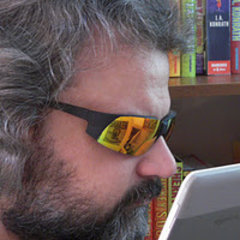
I've had a number of careers. In one, I was a professional speaker for
eleven years. At age 5, I determined I was
going to be a speaker. The only thing
that stood in my way was my knee-knocking, throat-locking, I-had-rather-die
fear of speaking in public. It took
thirty-three years to whip that one, but I did – how I did it will be the topic
of another blog. This post is about
something else.
In November, 1986, I was scheduled to
speak at the Unity Church in Missoula, Montana.
I arrived a day early, checked into the Red Lion Inn, which was perched
on the west bank of the Clark Fork River, and spent the rest of the afternoon
exploring downtown Missoula and the campus of the University of Montana.
Normally, I’m not a morning runner. I’m
the guy who runs late at night, the one you see and think, that’s what drinking will do to you.
However, I knew I had to run early because I was leaving for Santa Barbara
after the day’s speaking engagement, and there would be no other time to run.
As I crawled out of the warm bed, I
considered crawling back in, more than once, before I finished dressing and
headed out into the chilly Missoula morning.
I jogged north, a couple of blocks to the footbridge that crossed the
river, and landed on the campus. As I
pounded over the bridge, thoughts of the bed finally faded, and I settled
seriously into the run. On the campus, I
turned back south and began skirting the edge of the UM Grizzlies’ practice
football field.
Without notice, the wind stopped
blowing, there was a moment of hushed expectation, and then the sky was filled
with the largest snowflakes this southern boy had ever seen.
I stopped at the edge of the field, the
only person in the world, and a story sprang full blown into my mind. I saw a Vietnam Vet, a retired helicopter pilot;
enroll, with his son, at the University of Montana. Then I saw the two of them on the practice
field, throwing a football, kicking, catching, and trying to forget the loss of
the woman they both loved. I saw the
Grizzlies’ head coach watching them, and I saw him recruit both of them to play
for the Grizzlies. I saw, Josh Edwards,
at age forty-four, become the starting quarterback for the University of
Montana Grizzlies. I saw all of that as
I stood there in the first snowfall of the year. Finally, I shook my head and started running
again.
I spoke that day in Missoula, the following
day in Santa Barbara, and I wound up the week in Spokane. In spite of my schedule, I couldn’t shake
what I had seen, so I started writing it, first on a legal pad, later on my
computer. Though I was just writing for
myself, I gave the story a title. I
called it Fourth
and Forever. When I finished
it, I determined that it was good.
Convinced that everyone would feel the same way, I began sending query
letters to agents and publishers. I soon
found that everyone didn’t share my enthusiasm for the story. The bottom line is, I accumulated 412
rejections.
I learned my lesson. I kept writing, but I stopped sending query
letters. I wrote three more novels, and
they all joined Fourth and Forever in my desk drawer. There they stayed until Jeff Bezos hadn’t sold
me a Kindle. A year later it dawned on
me that I could publish my books on Kindle, and Jeff would not send me a
rejection letter – in fact, he would pay me 70% of everything he got for my
books.
A couple of months after I published my
second book, I realized that I knew the name of everyone who had bought one of
my books, and I’m no memory wizard. That’s
when I realized that I needed help, so I began looking for it. That’s when I found Joe Konrath and A
Newbies Guide to Self Publishing.
I devoured it and wanted more. It didn’t take long to find Joe’s blog,
and I was hooked.
If you are an indie writer or want to
be an indie writer, next to writing, reading Joe Konrath is the single best
thing you can do for yourself. However,
I hasten to point out that you won’t meet Joe Konrath by reading $100,000,
the blog he posted last Wednesday. You’ll
meet Joe and you’ll discover why I said “…reading Joe Konrath is the single
best thing you do for yourself,” when you read Reality Check,
the blog he posted this morning, Friday the 13th, 2012. Read that, reread it, and make a point of reading
it at least once a month for the rest of the year. Look for this passage in the post, and brand
it in your head and your heart:
“Yes, I've worked hard. I still do. But
no one deserves success…”
When you’re not reading Reality
Check and A Newbies Guide to Self Publishing, write, write, write…. Then,
to borrow a phrase from Zig Ziglar,
“I’ll see you, at the top.”
January 12, 2012
Zorro - on writing
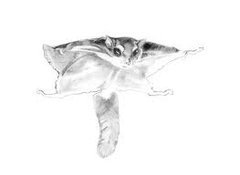
I once co-owned, with an ex-wife, a
three story home that hung on the side of Lookout Mountain, in Mentone,
Alabama. The house had three decks, one
on each level. The deck off the master
bedroom became bird feeding central. I
had five hummingbird feeders on poles attached to the railing that ran around
three sides of the deck. At the two
western corners, I had a huge feeder that must have held a gallon of bird
seed. The feeders had clear Plexiglas
sides so I could monitor the seed level.
I loved to sit on the deck during late summer, hummingbird season. I once counted fourteen different
hummingbirds eating, and chasing each other, around the feeders.
A few months after I moved in, I
thought I noticed the seed level in the large feeders going down between sunset
and sunrise. I didn’t think much of it,
because I knew there were no birds using the feeders after sunset. Then one night, just after I turned out my
reading light, I heard a soft thud on the side of the house. I lay silent for a few minutes, and then I
heard another one, higher up on the side of the house.
I slipped out of bed and moved quietly
to the sliding glass door that led onto the deck. The moon was almost full, but it was hiding
behind some fast moving clouds. In a few
seconds the clouds swept away, and the deck was bathed in silver light. At that moment, there was another soft thud,
and in seconds, I saw a small shape run along the top of the railing from the
house to the feeder. I looked closely
and saw that the tiny creature had joined another who was already at the
feeder. I must have made a noise,
because suddenly they disappeared, and they didn’t come back that night.
To make an eleven-year old story
shorter, I’ll cut to the bottom line.
The animals were flying squirrels (See the line drawing). They are tiny, nocturnal creatures, who live
in small bands. They could more
accurately be called “gliding squirrels,” since that’s what they do. They run to the top of a tall tree and leap
toward their objective. The instant they
jump, they spread their legs stretching a membrane between their front and real
legs. The membrane then becomes a wing,
a glider wing. The soft thuds I heard
were the squirrels softly striking the side of the house, just above the
railing. From there, they ran to the
feeders and helped themselves.
Over time I realized there were two
bands of them, and each band would land and eat while I sat in the center of
the deck, if I didn’t startle them. The
first band got to the house about an hour after dark, the second two hours
after dark. I could hear them working
their way up the mountain long, before they arrived, and I could hear them
moving away long, after they left. In
fact, now, fifteen years, later I can close my eyes and hear them again.
The second band to arrive was the
larger of the two. There were probably a
dozen members of that band. They were
led by Zorro, nicknamed by me, because of the unusually wide and dark bands
around his eyes. One night while waiting
on Zorro and his band, a wicked thunderstorm sprung up over Sand Mountain,
about fifteen miles north of Lookout Mountain.
I watched the storm advance, moving inside only when it was clear that I
was about to get drenched. The storm was
fully equipped with ten thousand foot tall lightening trees, thunder that
crashed and then rolled until the next clap sounded, and rain that swept across
the deck in sheets that at times seemed almost horizontal. I watched the storm, marveling at the power
of nature, and thinking, I won’t see
Zorro tonight.
I was a second or two away from turning
away from the door when the biggest lightening tree of the night flashed from
the clouds and dropped to the ground, holding in place for a long moment, and
in the process turning night into day. I
had dropped my gaze as soon as the lightening appeared. Without intending to, I was looking at the
feeder on the southern corner of the deck.
That’s when I saw Zorro – inside the feeder. Somehow he had managed to crawl through the
opening between the Plexiglas side and the bottom of the feeder and he was
standing on top of the seeds, protected from the rain and the wind, as he
stuffed handfuls of seed into his mouth.
No other member of his band was with him. The wind must have been gusting to fifty
miles an hours and the driving rain was marching across the mountain in
sheets. In spite of that, Zorro had
traveled to the house, and, as far as I know, on to his other scheduled stops
later that evening. A flying squirrel
weighs 2 to 4 ounces – you wouldn’t think one would be a match for a vicious
southern thunderstorm, but Zorro was.
**********
Yesterday, I read J.A.
Konrath’s blog. Joe is an indie writer, who has made
$100,000.00 in royalty in the past three weeks. After I read the blog, I went through Joe’s
archives and found one of his first posts, dated, December 29, 2005.
It was Joe’s
mantra for 2006. There were six points. The first one was:
1. It is inevitable, if I keep trying,
that I'll succeed. A professional is an amateur who didn’t quit. Success is
simply learning from failure.
When I read that, I thought of Zorro,
alone, in a wild storm, coming up the side of Lookout Mountain, and then I
thought of him, out of the storm, dry, and warm, inside the feeder. And then I thought of J.A. Konrath, who had no
guarantee that reaching his goal was possible, yet never turning it loose.
**********
If
you are serious about the writing business, if you want to enjoy the success
that Joe Konrath has achieved, take a moment and read all six of his points and
make them yours.
January 11, 2012
The Illusive Anomaly - Joy, Peace, and Harmony
[image error]
We are all chasing something – that something
is the thing we believe will make us happy.
In other words, the object of our pursuit is not the object at all. It is the instrument that we believe will
make us happy. For most of us, the
object of the chase will be one, two, or maybe even all three, of these things:
Money, Sex, or God.
That means, we believe that to have the
happiness we don’t presently have, we must obtain, more money, more sex, or more
God. There are a couple of key words in
the premise. They are “more” and “chase.” “More” is significant because even if the
premise were true, we can never get enough of anything to be happy – no matter
how much we get, we have to have more.
The other word, “chase,” is the real
key to the illusiveness of the objective.
There is nothing that will give us happiness. We already have all of the joy, peace, and harmony
there is – yep, it’s already here. We
don’t see it, because we are too busy chasing something else. Have you heard that before? Chances are you have. Do you think it’s just a bunch of air-head
baloney? Chances are you do.
Do you have the guts to check it
out? Before you say yes, you should know
this might take five minutes away from your search for truth “out there.” If you said, “OK, I’ll do it, whatever it is,”
here’s what it is: Go to a mirror, take
a deep breath, lean close to it and look into your eyes. Lock you focus. Don’t blink, don’t look away. Hold your gaze until the voice in the back of
your head that is screaming, “This is STUPID,” or “You don’t have time for
this,” fades away. Hold your gaze until
there is nothing but you looking into your soul. That’s where the big three, joy, harmony, and
peace, reside. When you’ve seen them,
you can close your eyes and breathe.
Remember where they are and join them
often.
January 10, 2012
Triberr
This post was written by my friend Renee Pawlish, and posted on her blog, To Become a Writer. The information about Triberr is excellent: a must read for all authors who are using Triberr to promote their work.
Indie Authors – How To Use Triberr to Grow Your Blog
Posted on January 5, 2012 by ReneePawlish
 Indie authors need to leverage all kinds of social media in order to effectively sell their books. Running a blog has been a great way for me to get the word out about my horror books, mystery series and other writings, but it’s also a way to share information that helps my book marketing. And in that vein, I’ve got a great tip for you. It’s called Triberr. A friend and fellow author, Bert Carson, asked me if I’d post a video with Triberr tips, so here you go.
Indie authors need to leverage all kinds of social media in order to effectively sell their books. Running a blog has been a great way for me to get the word out about my horror books, mystery series and other writings, but it’s also a way to share information that helps my book marketing. And in that vein, I’ve got a great tip for you. It’s called Triberr. A friend and fellow author, Bert Carson, asked me if I’d post a video with Triberr tips, so here you go.
Indie Authors and Triberr
Before the video, some quick information about Triberr. It was started by Dino Dogan and Dan Cristo (you’ll see their pictures on the Triberr homepage). Their idea is simple: have a site in which everyone in your Tribe tweets your new blog posts, and you do the same for others in your Tribe. All you have to do it approve the tweets and Triberr does the rest. It’s a great way to build your blog following quickly and effectively. I’ve seen a huge increase in followers and comments since I joined Triberr.
Indie Author and Triberr Tips
I’ve created a short video with some Triberr tips (you can click Full Screen for better viewing). I am by no means an expert but I’ve gone over the basics, and included a few extra things that I do to help those in my tribe increase their blog exposure.
I noted in the video that sometimes you have to manually import your blog feed. You do this by clicking that black-and-white button I showed in the video. Go to settings-RSS settings. You’ll see your blog feed listed and Manually Import. Simple as that  .
.
You have to be asked to join Triberr but the community is growing so you can find Tribes to join. You can also request an invite. Visit their FAQ for more information.
Running a blog can be hard work. It would be great if I could just say hey check out my horror books! Buy my Reed Ferguson mystery series. And everyone would go and purchase the books. Alas, it’s much more difficult than that. But a blog can help get you there. So consider Triberr…and no, this is not an affiliate for me  .
.
What are your thoughts? Other Triberr chiefs, please post comments with your tips.
January 7, 2012
Here and Now
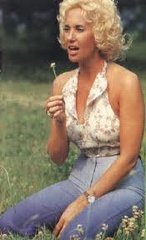
A few lifetimes back, I worked in
corporate America. Over a twenty year
span, I accumulated twelve years with Ryder Truck Rental where I was, at
various times and in various places, a One-Way Dealer Manager, Rental Manager,
Account Manager, District Sales Manager, and Branch Manager.
My first tour of duty with Ryder began
in 1969, when I worked in Birmingham, Alabama, first as the One-Way Dealer
Manager for all of North Alabama and then as the District Rental Manager. One of the most enjoyable parts of the Rental
Manager position was calling on new and prospective commercial rental
customers. I loved to hear their stories
– find out how they reached their present you-are-here
point.
One day I took a call from a
prospective customer who wanted to rent a tractor-trailer. He said his name was Rick Mays, and he added
that he was starting a new branch of his existing business. He needed the rig to pick up and deliver
equipment in a number of states. The
last pick-up would be in Mexico, and he wondered if he would need any special
paperwork for that leg of the trip. So
did I, since none of my customers traveled in Mexico, but I didn’t say so. I just told him I’d figure it out. I asked a few questions and two minutes later
I was heading for his office.
Rick’s background was radio, TV, and
recording. In fact for many years, he
had been one of the top D.J.s in Birmingham. He took me to his cluttered office and after
moving stacks of stuff off the most accessible chair, we settled in to talk.
His primary business was a recording
studio. His secondary business was
duplicating and distributing cassette tapes.
His new enterprise was buying and selling used recording, TV, and
cassette duplication equipment. His idea
was brilliant and simple. He sent a
letter to radio and TV stations asking them to tell him what used equipment they
had to sell and what used equipment they would like to purchase. They answered the two questions on the
enclosed postcard and sent it back to Rick.
He had started small, a few months
earlier, and now the new operation had mushroomed, and he had outgrown the truck
that he owned. We worked out all the details and began what
became a neat business arrangement for both of us.
Over the next couple of years, we
became good friends, and over that period of time I heard the whole story of
his business adventure.
It went like this. After almost twenty years in the radio
business, there were no more challenges.
He wanted to do something different.
He said, “At first it was just a nagging thought in the back of my mind,
but it quickly grew until it was all I could think about.”
His eyes went out of focus as his mind traveled
back to the morning he left the radio business.
The he refocused his attention on me, grinned, and described that
moment. “I started a song, stood up and
walked out of the studio. I stuck my
head in the GM’s office and said, ‘Charlie, you’re going to have to get someone
to finish my show. I quit,’ and I walked
out.”
His first business venture was
promoting a boat race on the Warrior River.
He looked at me, bashfully I thought, and said, “Carson, don’t ever
promote a boat race. No one buys a
ticket. They come in boats and anchor in
the middle of the river, or else they just drive their pickup to a shady spot,
back up to the edge, and sit in the back drinking beer and watching the
show. In a few hours, I lost most of my
savings.”
But he didn’t quit. He took over a failing recording studio and
thanks to his local fame, he quickly got it on its feet. In six months, it was profitable, and he
began signing and promoting local talent.
Cassettes were new and hot, and Rick used a local company to reproduce
them for his entertainers. It was a lucrative
arrangement until the cassette company bellied-up early in their
relationship. There was no way to recover
the money he had prepaid for cassettes, so he took the cassette duplication
equipment instead.
“Business was a constant struggle,
compounded by the fact that I was always looking for the gold mine, instead of
taking care of the daily details. One
day, a woman called me from Mississippi.
She told me her daughter, Wynette, could ‘sing real good,’ and asked if
I’d audition her. I said no, I had a
bunch of experienced singers who were well on the way to success in Nashville.”
Rick stopped talking and I could see him
move back into his memory, so I kept my mouth shut. Finally he said, “She wouldn’t leave me
alone. Sometimes she would call twice a
day. Finally, just to get her off my
case, I said, ‘Ms. Byrd, why don’t you bring Wynette in Saturday morning, and I’ll
give her an audition.”
I sat through another long pause, then
he said, “Well she did bring her in, and I did give her an audition, but all
the time that kid was singing I was thinking about a dozen things, none of
which was her. When Wynette finished, I
said to her mother, ‘she’s not going to make it in the music business, Ms.
Byrd. I think you ought to take her on
back to Mississippi.”
“That was my wake up call, Carson.”
“How’s that?” I asked.
“Well,
Ms. Byrd didn’t take my advice. She took
Wynette to Nashville, got her an audition with someone who did listen, added
the first name ‘Tammy’ and made Wynette her last name. That was the beginning for her, and it was
the beginning for me. You see, I had
always believed that persistence would make me successful and thanks to Tammy
Wynette, I discovered that there is something more important than persistence.”
He shut up, and I knew he wasn’t going
to tell me what he had discovered until I asked. I blurted out, “What?”
He looked right in my eyes, through
them, and was staring into my soul when he said, “If you aren’t present,
totally present, in every moment, it doesn’t make a damn how persistent you
are.”
For more than forty years, Rick’s words
have never been far from the front of my mind, and I can say with absolute
certainty, he was dead on.
January 6, 2012
Make My Day
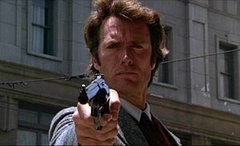
In the 1983 movie, Sudden Impact, Clint
Eastwood, as Inspector Harry Callahan, on two different occasions uttered a
phrase that very quickly became part of our language: “Go ahead, make my day.”
Everyone knows what the phrase
means. In Alabama, we’d define it this
way – Do it and die.
Apparently the phrase evolved for Clint
Eastwood as evidenced when he pressed his palms into wet cement in front of
Grauman’s Chinese Theatre in Hollywood.
There, above his signature, he wrote, “You make my day.”
In Alabama, we define, “You make my
day,” this way – You make my day. That version of the phrase defines
itself.
When someone makes your day, they light
it up, usually with some simple, although conscious act: a smile, a word, a
gesture, or some combination of the three.
Here are a couple of examples.
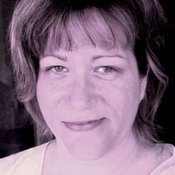 I now have an editor, (that will probably
I now have an editor, (that will probably
make the day of more than one of my readers).
She is Erin Potter of Vancouver, B.C. Recently I found a hard-copy of a novella, Maddog
& Miss Kitty that I thought was long gone. I’m combining it with four short stories, and
Erin has agreed to edit everything. Last
week, I sent her the short stories, and I’ve been holding my breath waiting for
her first reaction. Wednesday she emailed. Her message began with these two
sentences: “I have reviewed all four stories, and I've really enjoyed them. Such a
pleasure to read your writing!”
She could have simply said, “I’ve
started working on the short stories and should have them back to you by next
Monday,” and if she had said that, I would have been happy. Instead, she took me way beyond happy. She made my day, by adding twelve more words.
 And then, there’s Jo VonBargen,
And then, there’s Jo VonBargen,
originally a twitter friend who has become a true friend to both me and my
wife, Christina. With no expectation or
prompting, Jo wrote a 5 star review of Southern
Investigation that blew me
out of the water. But, that wasn’t
enough for her; she’s from Texas, where nothing is ever enough. On her web site, Two-Bit Bard, She wrote
a blog called A Big Bow to Bert Carson. Among other, you-make-my-day things, she
said, “Bert Carson is obviously one of the most soulful, selfless, incredible
intellects you could ever come across, and he has truly given the world a great
gift with his works.” Obviously that
made my day.
**********
Every day, we have countless
interactions with each other. With each
one comes a choice – will this be a “you make my day,” or a “do it and die,” encounter. Our world is transformed when we choose the
first option.
January 3, 2012
Resolution or Conviction

July 2, 1979, I went for my first run. I’ve been a runner ever since. That sounds easy, but in the beginning, it
was anything but easy. I was 37 years
old, out of integrity, out of luck, and almost out of cigarettes, when something
clicked.
I got off the sofa, half-finished
cigarette in my hand, and then looked at the almost empty pack of cigarettes on
the table beside my chair. In that
moment, I made a resolution: I’m going to
become a runner.
I walked out the door, flipped the
cigarette into the gutter, and began my first run. It was almost eight at night, and Laurel,
Mississippi was dark and quiet. Less
than a minute later, I was grateful that it was dark so no one could see my
first run.
I ran every day for the next six
weeks. Resolutions sometimes have enough
energy to keep themselves, going on for a while, in spite of rational protests,
but finally even the most energized resolutions shut down and fade away unless
something happens to transform them from resolution to conviction.
My running resolution was almost
history when my phone rang. Thinking I
was about to make a sale, I answered in my most professional voice, “This is
Bert Carson, how may I help you.”
A bright, positive voice that I’d never
heard before, said, “Bert, this is Carl Touchstone (much more about him in future
blogs). You don’t know me. I’m a runner, and I heard you were too. Is that right?”
That moment in my life occurred almost
on 33 years ago, and I can remember it as clearly today as if it just happened. I straightened in my chair, forgot my aching
calves and stiff knees, and said, “That’s right, Carl. I’m a runner.
Would you like to run with me sometime?”
When I said, “I’m a runner,” my dying
resolution became a conviction.
********
A
resolution is a wish, a whim, a pink idea floating on a gentle, early spring,
breeze. A conviction is part of one’s
life – a part that moves through cold icy winters as easily as warm summers.
*********
Last night, at eight o’clock, I got off
the sofa and walked away from the just-beginning, Fiesta Bowl and the warm
house. Wearing two shirts, a reflective
windbreaker, fleece gloves, a headband that I hoped would keep my ears attached
to my head in spite of the temperature and the wind, and went outside. At the end of the driveway, I took a quick
hop-step and began running.
Five miles later, running down a dimly
lit side street, I passed a woman being walked by two dogs. She was so wrapped in clothing that I involuntarily
conjured up a picture of the Michelin Man.
As I passed her, I said, “Good evening.”
Startled, she snapped her head up, saw
that I was old and alone, and relaxed.
Then she called after me, “You must have made a New Year’s Resolution.”
Without looking back I shouted, “No Ma’am,
I’m entertaining a thirty-three year old conviction. Have a great New Year.”
**********
I can’t tell you how to turn a
resolution into a conviction, but I can, and will, tell you that if you want to
get off the sofa and stay off of it, you should find out.
Have a great New
Year.
January 1, 2012
Where Were The Starlings?

I
love to feed birds. I have two main
feeding positions in the backyard. The
first has two long tube feeders, each with multiple feeding positions, and a
large single feeder that holds as much seed as either of the tube feeders. About fifty feet behind the main position, is
a second one. It holds one suet feeder
and is mainly for the neighborhood woodpeckers and the starlings when they are
moving through our area.
It
is early winter, and the starlings are moving; heading for Cancun I suspect, jealously. Yesterday I filled the tube feeders,
scattered cracked corn for the pigeons, doves, and squirrels, and filled Streak’s
feeder (our resident chipmunk). Then,
noting the suet feeder was empty I loaded it with a new suet cake. As I put the cake in the feeder I carefully
checked the sky and all the large trees near the feeder – there wasn’t a single
starling in sight or within earshot.
Before
I made it back to the house I heard the starlings arrive. Without stopping, which I knew would startle
them, I looked over my shoulder. There
must have been fifty starlings on and under the feeder, and there were more
dropping out of the trees.
Where
were the starlings a few moments before?
If you think I know, you’re wrong.
And if you think I know where my prospective readers, or yours, are
before we publish our work, I don’t know that either. But I do know this, nothing happens for a
writer until something is written and published.
Have
a magical, best-selling, New Year.
December 30, 2011
Another Noah
[image error]
We (me, my wife, and our partner,
Adrienne Wall) own a small photography company.
We live in Huntsville, Alabama, and operate in North Alabama, North
Mississippi, and Western Tennessee.
Since we specialize in Day Care Centers, we meet a lot of kids, and we
can confirm, with Art Linkletter and Bill Cosby, that Kid’s Say the Darndest Things.
For example, a couple of months ago my
wife and I were at a Day Care Center, a large one, with over a hundred children. The center is run by two delightful women
both of whom love to teach so they each have a regular morning class.
We were set up across the hall from one
of them who was teaching a Bible lesson to a class of four year olds. One of her students was named Noah. A number of the children had made comments
before the lesson started, but Noah had been very quiet until the director
began telling the story, from Genesis, of Noah gathering all of the animals to
go in the ark. Noah, the four year old,
remained quiet until he heard the teacher say, “And then Noah gathered two of
each animal on the earth, to go in the Ark.”
At that point a little girl called out,
“What about snakes, did he catch two snakes?”
The teacher said, “Yes he did. Noah even brought two snakes into the ark…”
That’s as far as she got in the story
because Noah, the four year old, shouted, “Whoa, hold it. That wasn’t me. That was another Noah…”
The teacher lost it,
and so did we. Since then, the phrase, “Whoa,
that was another Noah,” has become part of my thought process. For me, it is a graphic example of the tendency
we all seem to have to disavow any connection with behavior that doesn’t fit our
definition of acceptability. As that
story illustrates, we begin forming our area of acceptability at an early
age. By the time we are in our twenties,
it has become us – our clearly defined self, and that belief system determines
the course of our lives; unless we are willing to take a serious look at the
things that we have chosen to be our truths - the “snakes” in our lives.

